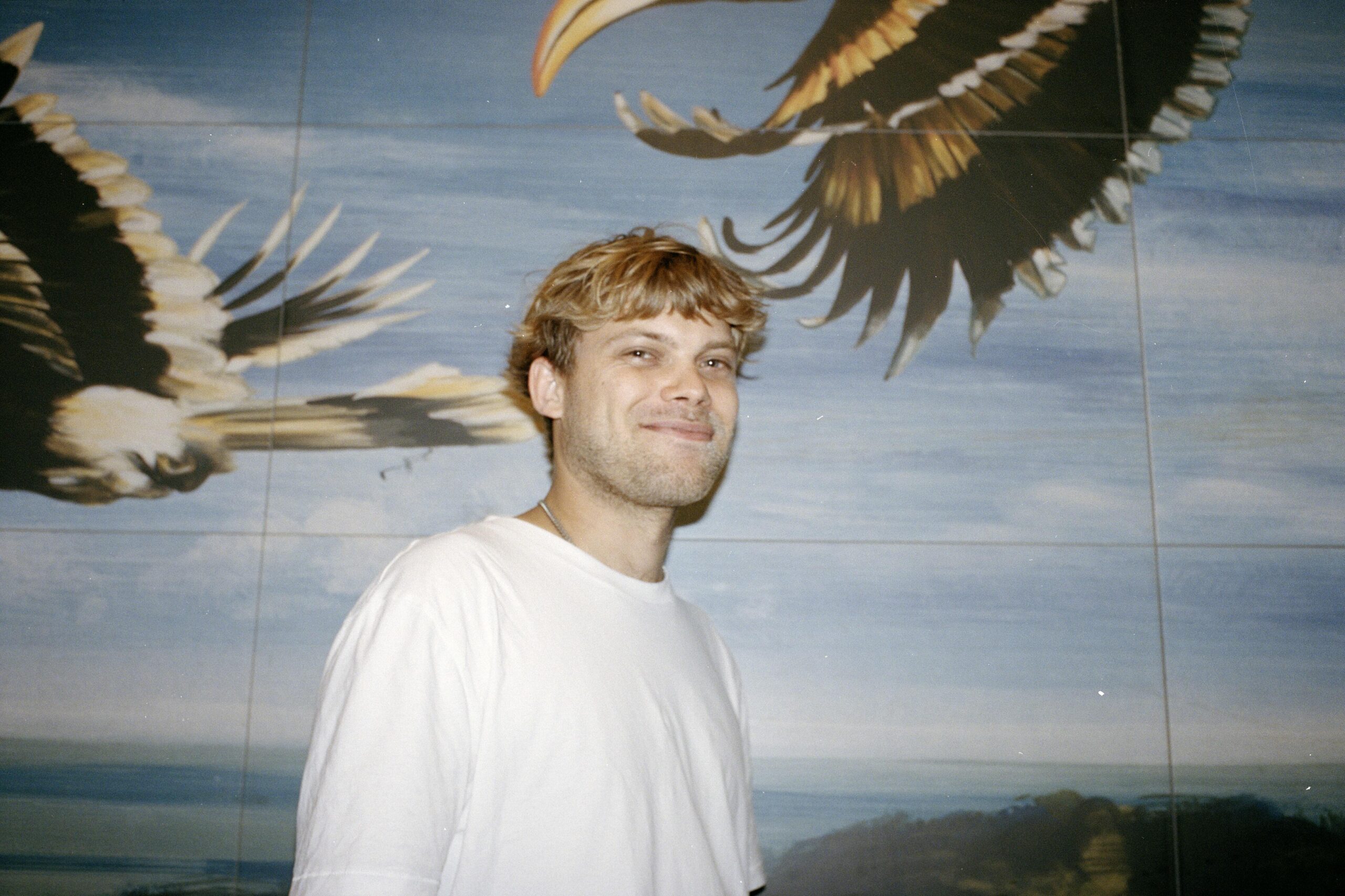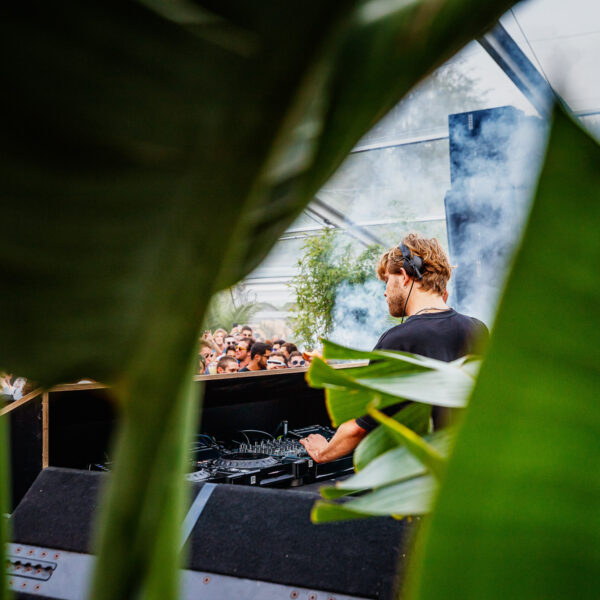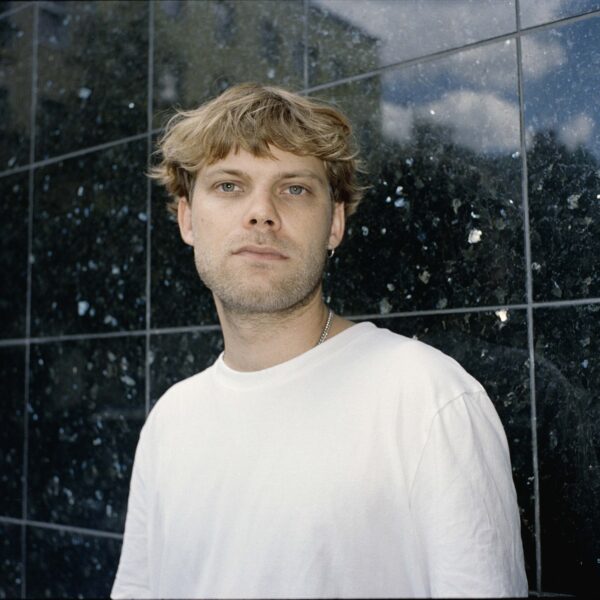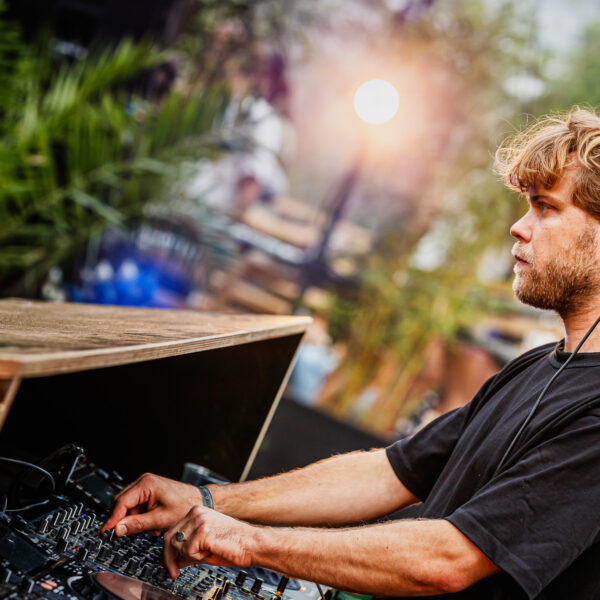Sitting down with Dekmantel artist and DJ, Interstellar Funk ahead of a showcase at Jaeger to talk about the evolution of his sound as an artist and his trajectory into one of the most respected DJs on the circuit today.
Interstellar Funk (Olf van Elden) is an anomaly in our musical galaxy. His music, whether he’s indulging early influences of Detroit House and Chicago or stepping off the grid into new ambient realms, is incredibly hard to categorise and illusive in its appeal. There’s always something functional lurking in the background, with a sense of a tranquil melancholy delivered in bristling synth melodies and uninhibited rhythm sections.
His records have found their way on labels that thrive and indulge that sonic aesthetic – labels like Rush Hour, L.I.E.S, Berceuse Heroique and Dekmantel – and as a DJ he’s expounded on that sound, cultivating a unique reputation amongst his peers and audience alike. His music has always been very “synth based” with a nod to the vintage sounds. “I always use old synths,” explains Olf, “and it’s always based on little melodies, less sample based, less drum based.”
Between his associations with Dekmantel; his earlier work at Rush Hour; and his various connections with the people behind Club11/Trouw/De School he is something of an Amsterdam institution in his own way. A regular fixture at the Dekmantel festival since its inception, Interstellar Funk is practically part of the crew there. He is one of the most-featured artists on the lineup, and when they are touring the Dekmantel festival around clubs around Europe, he is on the figurative tour bus.
It seems only apt that his debut LP comes via the Dutch label. After nearly a decade of 12” and EPs Interstellar Funk has finally made his debut on the long player format in 2022 with Into The Echo. The record, coming together during the pandemic, sees the artist channel the sound he’s cultivated across his previous records towards a softer, more organic sound, suited for the album package.
Delving into his past experience at Rush Hour, the Amsterdam-based record store of some repute, where he started as an intern, Interstellar Funk charts a journey through those formative experiences digging through the record store’s shelves on this album according to earlier interviews. The result is an LP that surprises at times in the context of Interstellar Funk’s more club-orientated work and yet again defies categorisation. Into the Echo reflects on an introverted time for humanity in a way that only Interstellar Funk could, and while it moves away from the club, it hardly breaks all contact in the machine-heavy aesthetic of the artist.
It’s something he is carrying through to his next record at least, a 12″ on his own label, created around the same time with his piano teacher and friend Loradeniz. “It sounds quite similar” to the album says Olf with the pair bonding over “same kind of music” and recording the record pretty fast during the same pandemic period as the album. It suggests an evolution in the artist’s sound and when we sat down to talk to him before his appearance for the Dekmantel showcase last Frædag at Jaeger it was one of the many questions we had lingering.
Let’s start with the album. Why was this the right time for you to put out your debut LP?
I wasn’t really planning to do the album. I always wanted to make an album, but time-wise it was always a bit difficult, because I was playing a lot and I needed more time in the studio. I was supposed to release a 12” on Dekmantel in 2020 and then the pandemic started, and I pulled back the 12” because it was a bit more clubby, and it didn’t make sense. And then I was like: “I’m just gonna keep on working on the project and see where it goes.”
So the tracks weren’t ready ahead of the album?
I had those four tracks ready, and I took those four tracks as the direction of the album. In the end only two tracks made it onto the album and the rest didn’t. It was more like now I have the time, and it was nice to have a project, because I needed something to work on. I just decided to try to make an album and see how it goes and this is what came out.
Did you have an idea for the record like what you wanted it to sound like?
I had some inspiration and some ideas. Like with electronic albums, I always like it when it touches more genres and not only club stuff. With an album you can go deeper and different directions than with 12”. I took the freedom to go a bit further from the dance floor.
That’s something I picked up from listening to it, it sounds very organic compared to the past 12’s you’ve released.
I think, because I had this in mind, and that I spent so much time in the studio, it probably changed my sound a little bit. It evolved into something.
Do you think it might make it into future records?
Yeah, I’m not only interested in club music, I like other stuff. The idea of making albums and doing whatever you like, that freedom you have, it’s really interesting.
My association with your music has always been strongly toward beat music with a dark, wavy sound. Are you stepping away from that sound?
The problem is people always compare you with something. If you play a few wave tracks, people suddenly think you’re a wave DJ, but I like it all. I was always into Detroit, Techno and Chicago. I like really dark, experimental and I like wave a lot, but it’s not like I’m only focussing on those things. There is a lot of experimental ambient stuff I like, and maybe you can hear that on the album.
Yes, I can certainly hear some of that ambient influence. I read somewhere that your time at Rush Hour influenced it too. How did the record store influence it?
I worked there for eight years and I discovered a lot of music there. When I started working there I was mainly listening to Detroit and Chicago, like Omar S and Theo Parrish. They also did a lot with Brazilian music and African music (at Rush Hour), so I learnt a lot about different genres there. You’re also surrounded by records and people that know a lot about music, so you definitely learn to appreciate other styles. Maybe more than when you’re only a DJ and focussing on club music. A little Disco and Italo, but a lot of Jazz, Brazilian and African music.
When did you start working at Rush Hour?
I started there as an intern in 2012. I worked out of the office, mainly for the label.
How did you end up at Rush Hour?
I went to art school and I had to do an internship, and my direction in art school was in music. I was already going (to Rush Hour) to buy records and stuff, and my dream was always to work there.
And this was before you started DJing?
I was already buying records.
I read about your brother being involved in club 11 (predecessor to Trouw and De School). Was that your initial introduction into clubbing and Djing?
Yes, club 11 was a really good club and they did loads of cool parties there. I always went there with my dad to support his (Jorn van Elden) parties.
How old were you at that point?
15 or 16. Because my brother was doing the parties it was fine (to get in). I don’t think they were that strict.
And your dad would go with you?
Just to support. He still comes to parties now and then, he was at the (last) Dekmantel festival.
Does he have an interest in this music?
He’s more interested in what I do. Just a proud dad, standing in front.
What kind of music was he listening to when you guys were kids?
I don’t think he was interested in music at all. They were listening to music, but it wasn’t like I grew up in a musical family or something.
I guess, because club culture has been so ingrained in Dutch culture, that it’s not unusual for the older generation to go to club nights or music festivals.
Yeah, maybe it’s more accepted, that’s true, but my Dad was an (athlete) so he wasn’t drinking or doing any drugs. He wasn’t into club music at all when he was younger. Maybe people that grew up in the eighties, they got into club music, but my dad is a little older. In the 70’s you didn’t really have that.
So, since you weren’t really into that music and didn’t grow up in a musical family or anything, what drew you to club music initially?
I just liked the parties and the festivals. It was just a new world opening up. I wasn’t necessarily interested, but I did like the music. It was either really heavy Techno like DJ Rush or it was minimal like the Villalobos stuff. I liked it all and just partying. People showed up at afterparties and we had a turntable; we had one Technics and one shitty turntable and people just started to learn how to mix.
You came up at the same time as Dekmantel and I remember at that point Detroit House was huge in Amsterdam. Was that the stuff you started buying?
When I started going to Amsterdam, that’s when Dekmantel started going with their own parties, and that period from minimal shifted to Detroit and Disco. We saw Theo Parrish for the first time; it was a really interesting period. My first records were really shitty, but I remember buying the first 3 chairs double LP (Moodymann, Marcellus Pittman, Rick Wilhite, Theo Parrish), and I still have that record. I was also a huge fan of Omar S and I’m still a huge fan.
At what point do you go from Detroit House and start digging further into other genres?
I don’t know. I think you find a new genre, and you go deeper and you start buying and playing those records. I also used to buy a lot of Disco, because I saw Theo Parrish playing it, but I figured out maybe it wasn’t really my thing.
Were you making music throughout all of this?
No, I started later.
What was the catalyst for you to start making music?
I had a group of friends and one of the guys, Deniro used to have a lot of gear, an 808 and 909 – all the cool stuff. Because of him, I collected money for my birthday and bought a Juno 60 (synthesiser). I always tried to make music on Ableton (computer software), but I couldn’t’ really figure it out, it was too complicated for me. I got a Juno 60 and a 707 (drum machine).
And then the debt starts…
(laughs) It was definitely an addiction.
You started around the same time that Dekmantel started. Did you always have a close relationship with them?
Amsterdam is pretty small and back then the scene was even smaller. There were a few parties. You had the Rush Hour that was pretty big, and then you had a party every Thursday at this club, everyone used to go. They (Dekmantel) used to play there and they had their own party in a small club in Amsterdam. It was a dirty place, mirrors on the walls and a dancing pole in the middle. It was a trashy, shitty place, but in a cool way.
Because the weekends were really long; you would go out on Thursday, then you go to an afterparty and thgo out on Friday. You hang out with the same people for hours and days, and you build up friendships quite fast.
You’re probably one of the most frequent return guests to the festival.
By now I might be.
So doing the record for Dekamntel must solidify something?
I already had a few tracks on compilations (with Dekmantel). It was just a natural relationship, and it’s always nice to work with somebody you can trust and that you know really well.
Getting back to your sound, do you think it marks a new chapter in your sound as an artist?
I think your sound always changes. If you look back to legendary producers, their sound always changes. If I listen back to my first record, it’s not something I would play now, but I also don’t hate it. It’s a lesson you keep learning. Your next release should always be better.




